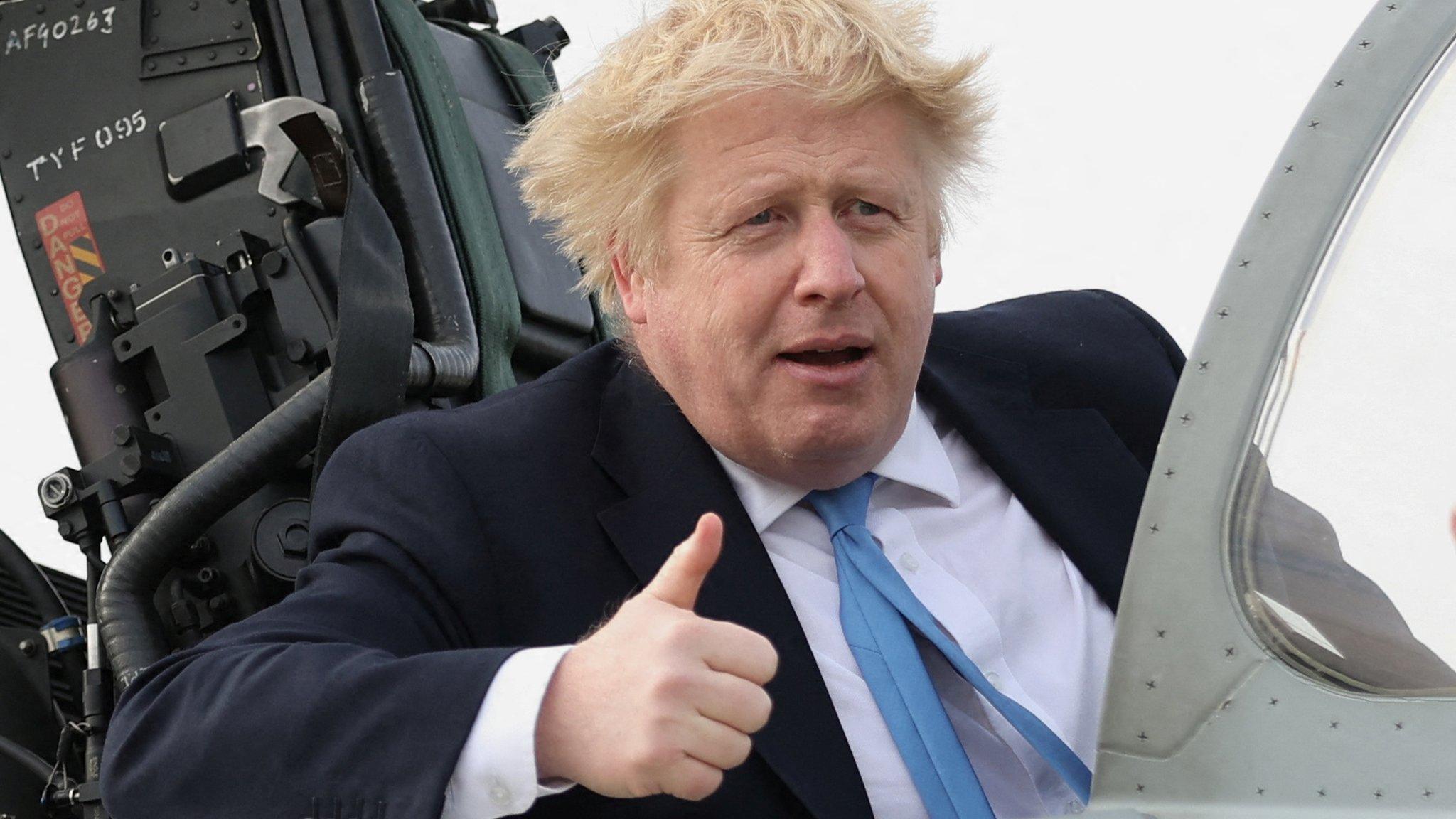Boris Johnson resignation: New leader will shift political landscape
- Published
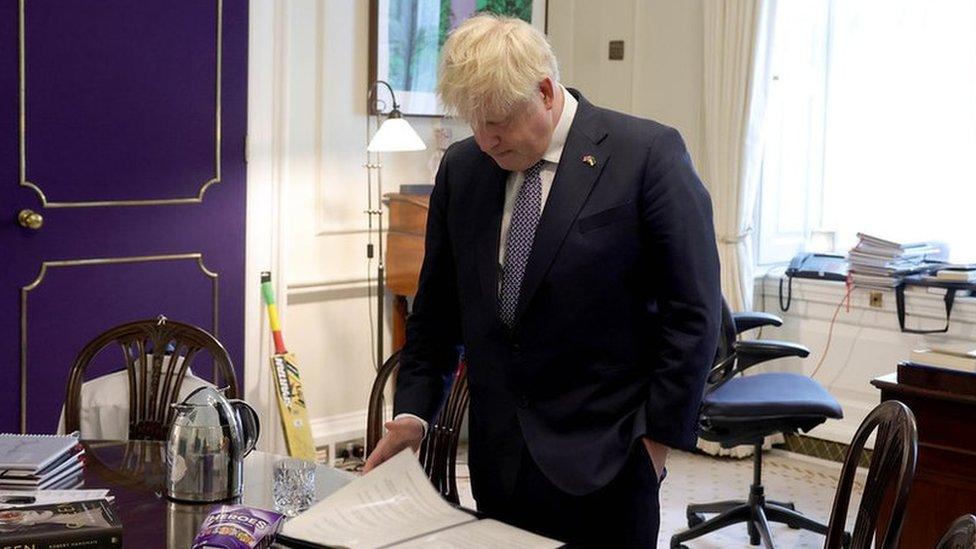
He climbed high and fell fast.
Boris Johnson will be remembered as a convention-smashing, rule-bending, first name recognition prime minister.
A man whose character strengths, in the eyes of many Conservative MPs, were also his weaknesses.
Great at campaigning, poor at governing, many backbenchers found themselves reflecting.
Standing at the lectern in Downing Street, Boris Johnson was forced to articulate that his imagined future had been crushed.
The boy who dreamed of being "world king" ejected.
A primary colours prime minister provoking colourful reactions to the near end: protesters just beyond the Downing Street gates screaming "liar", some of his most loyal MPs comparing his defenestration to the downfall of Lady Thatcher.
Boris Johnson is now, he insists, a prime minister emasculated, fulfilling a duty rather than a bucket list of ambitions.
His supporters are pointing to convention that departing prime ministers loiter until their replacement rolls up, rather than instantly skedaddle to make way for a caretaker PM.
As a spectator to this noise from Westminster, you might ponder: why them and what next?
Why them, that tiny collection of MPs, deciding who should govern and lead, so relatively soon after a big election win?
Well, in a parliamentary democracy, for better or worse - as opposed to those countries with a presidency - our party leaders, and so our prime ministers, are chosen by their parties, (and affiliated trade unions in the case of the Labour Party) not the rest of us.
It means the thinnest sliver of the country will get to decide who replaces Boris Johnson. The electorate will have the chance to endorse or reject the chosen one, but only at the next election.
It may not surprise you to discover that Westminster is a postcode which doesn't suffer a deficit of ambition.
The wannabes will fight a popularity contest among Tory MPs in the next few weeks, and two of them should be left at the end of that process, Conservative Party members will have the final say.
Over the course of the summer, somewhere between 100,000 and 200,000 people will be charged with selecting the next head of our government on our behalf.
It is a safe bet the next prime minister will be a very different character to Boris Johnson. Given the manner and motivations behind his toppling, being seen to ooze integrity and revere truth are qualities all the candidates will aspire to illustrate.
But beyond that, there will be an intriguing debate about what it means to a Conservative in 2022.
A Conservative in a high tax, high spending era.
A Conservative in post-Brexit Britain, where neither main party at Westminster contests the fundamentals of the UK's departure from the EU, but where our relations with our nearest neighbours have not normalised since.
When a new leader assumes office, the political landscape will instantly shift.
Yes, they will have novelty and freshness, at least for a bit. But no electoral mandate to call their own.
And the opposition parties will confront a new opponent.
As the Boris Johnson era concludes, so too will there be new turf upon which the arguments of tomorrow will play out.
WATCH: Johnson announces resignation as Conservative leader
Related topics
- Published7 July 2022
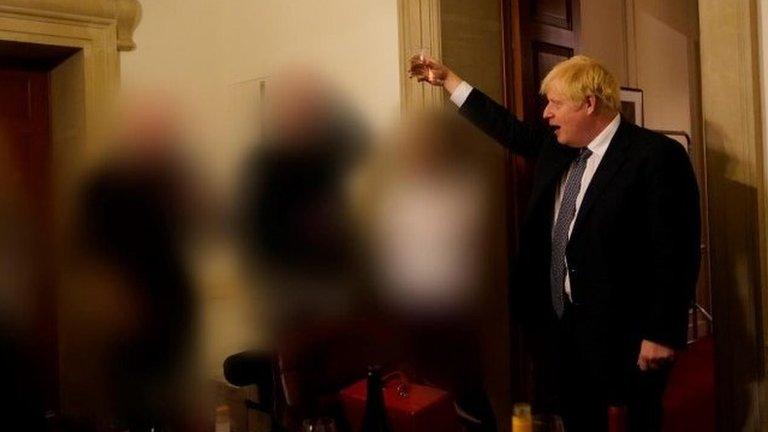
- Published24 October 2022
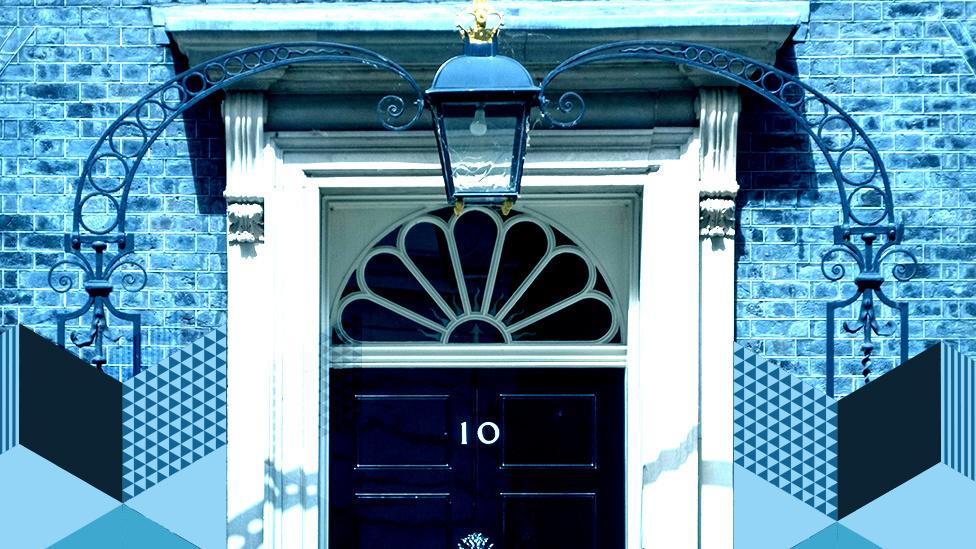
- Published7 July 2022
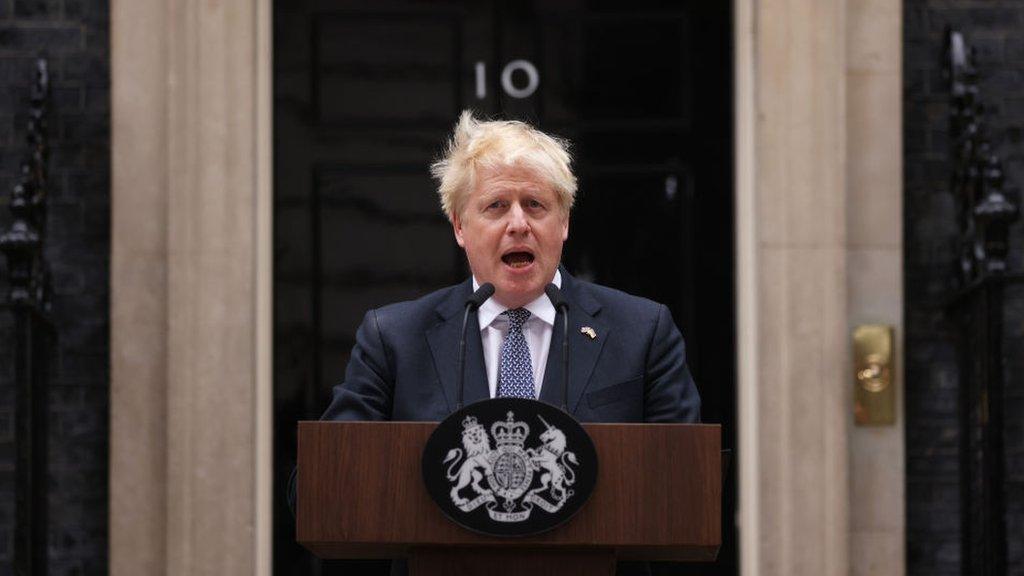
- Published7 July 2022
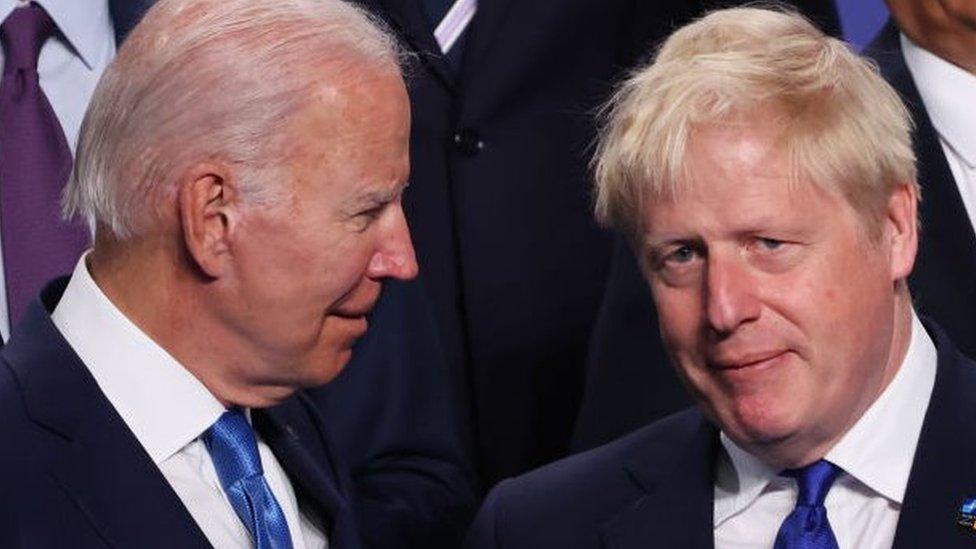
- Published7 July 2022
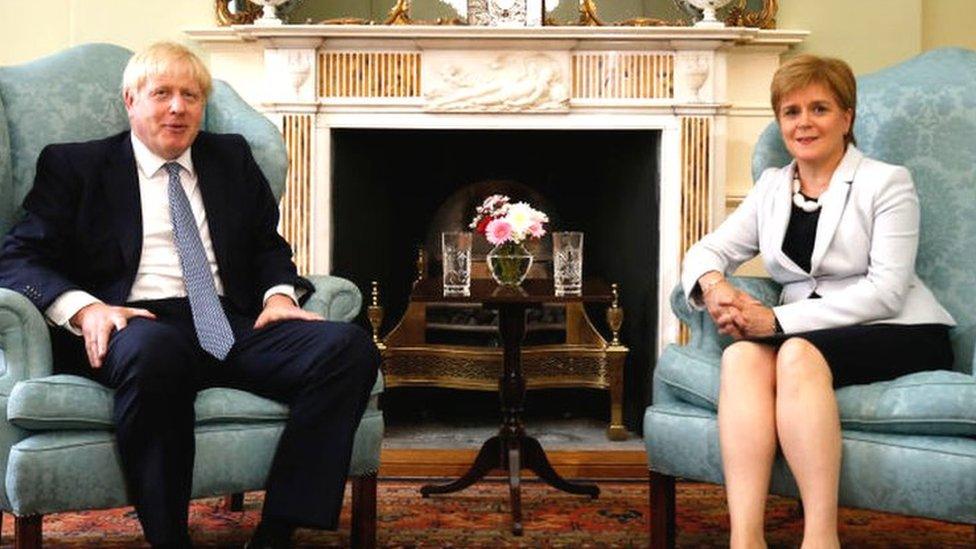
- Published4 July 2024
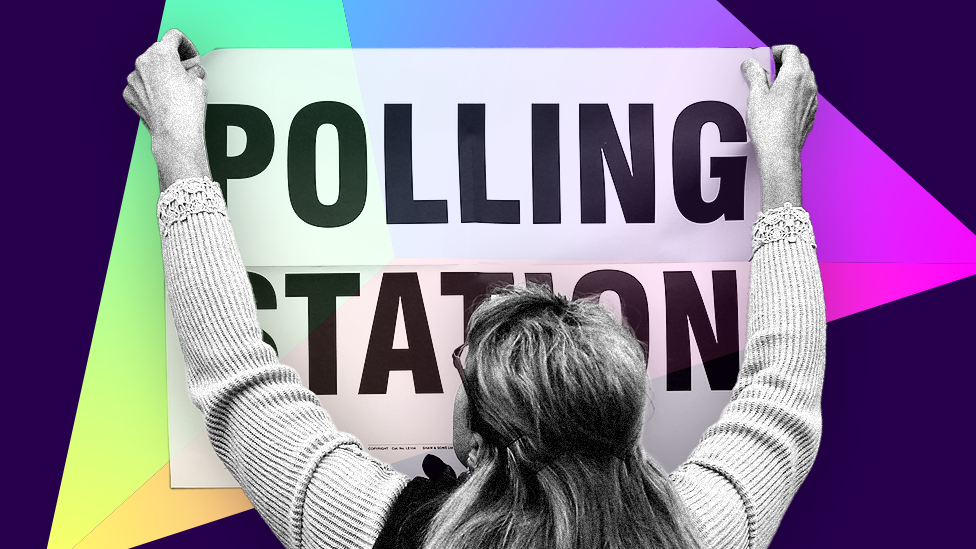
- Published7 July 2022
